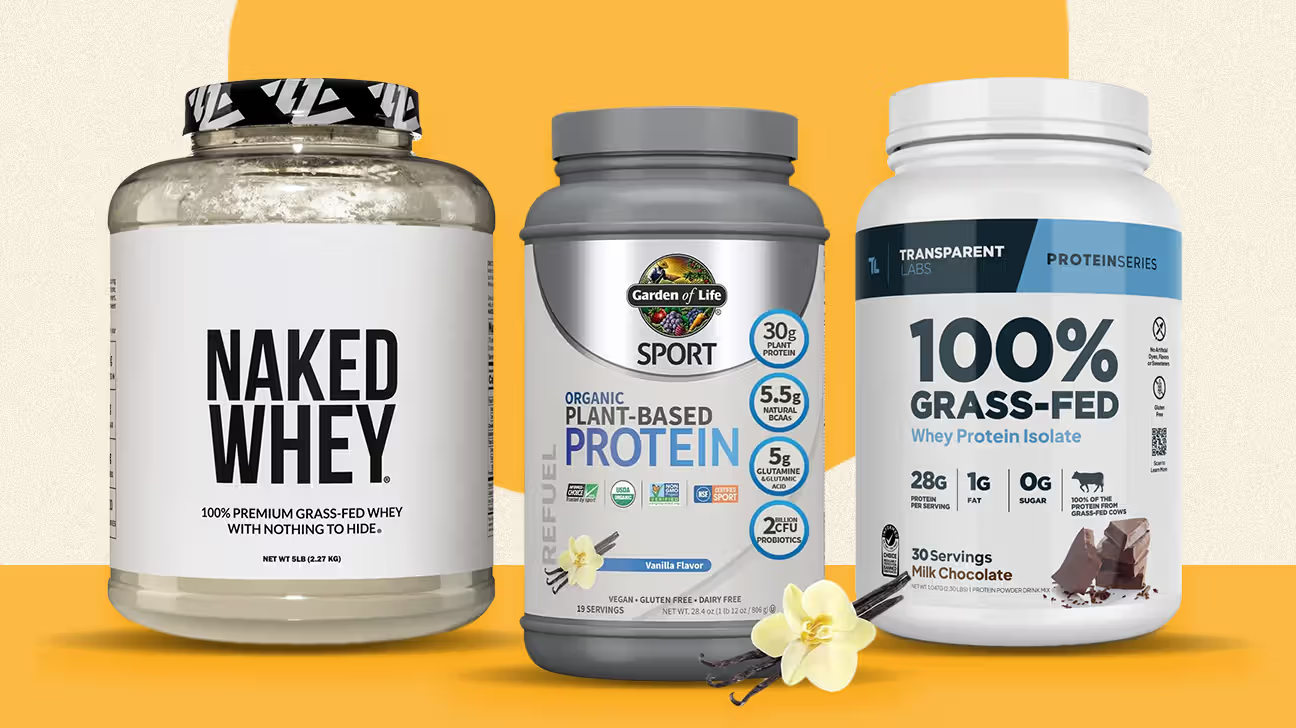
Introduction
Protein powder is an essential supplement for many fitness enthusiasts, athletes, and those looking to improve their overall health. With so many options available, choosing the best protein powder can be overwhelming. Whether you’re looking to lose weight, find a protein powder that tastes great, or cater to specific dietary needs like veganism, this guide will help you make an informed decision.
Understanding Protein Powders
Protein powders come in various forms and are derived from different sources. Here’s a breakdown of the most common types:
| Protein Type | Source | Key Benefits |
| Whey Protein | Milk | Fast digestion, high in BCAAs |
| Casein Protein | Milk | Slow digestion, ideal for nighttime |
| Soy Protein | Soybeans | Plant-based, contains all essential amino acids |
| Pea Protein | Peas | Hypoallergenic, vegan-friendly |
| Hemp Protein | Hemp seeds | High in omega-3 and omega-6 fatty acids |
| Brown Rice Protein | Brown rice | Easily digestible, hypoallergenic |
| Egg White Protein | Eggs | High bioavailability, low in fat |
Best Protein Powders Overall
When considering the best protein powders overall, factors like protein content, taste, mixability, and ingredient quality are crucial.
2.1 Optimum Nutrition Gold Standard Whey
- Protein per serving: 24g
- Calories: 120
- Key Features: Widely recognized for its quality, taste, and effectiveness. Contains whey isolate, concentrate, and peptides.
2.2 Dymatize ISO100
- Protein per serving: 25g
- Calories: 110
- Key Features: 100% whey protein isolate, fast absorption, great for post-workout recovery.
Best Protein Powders for Weight Loss
Protein powders for weight loss typically have lower calories, fat, and carbs, while still providing sufficient protein.
3.1 Isopure Zero Carb
- Protein per serving: 25g
- Calories: 100
- Key Features: Zero carbs, zero fat, ideal for those on a ketogenic or low-carb diet.
3.2 Garden of Life Raw Organic Fit
- Protein per serving: 28g
- Calories: 170
- Key Features: Organic, plant-based, contains weight loss ingredients like green coffee bean extract.
Best Tasting Protein Powders
Taste is subjective, but some protein powders are consistently praised for their flavor.
4.1 BSN Syntha-6
- Protein per serving: 22g
- Calories: 200
- Key Features: Known for its milkshake-like taste, available in various flavors like chocolate milkshake and strawberry.
4.2 MuscleTech Nitro-Tech
- Protein per serving: 30g
- Calories: 160
- Key Features: Superior taste with added muscle-building ingredients like creatine.
Best Protein Powders for Women
Protein needs can vary for women based on their fitness goals, but many women prefer powders that support lean muscle and overall health.
5.1 FitMiss Delight
- Protein per serving: 16g
- Calories: 90
- Key Features: Contains digestive enzymes, fruits, and vegetables blend, designed specifically for women.
5.2 NLA for Her Whey
- Protein per serving: 28g
- Calories: 130
- Key Features: High protein content with low carbs and fats, tailored to female athletes.
Best Vegan Protein Powders
Vegan protein powders are derived from plant sources and are ideal for those avoiding animal products.
6.1 Vega Sport Premium Protein
- Protein per serving: 30g
- Calories: 160
- Key Features: Plant-based protein blend, NSF Certified for Sport, includes turmeric and tart cherry for recovery.
6.2 Orgain Organic Protein
- Protein per serving: 21g
- Calories: 150
- Key Features: Organic, plant-based, includes fiber, ideal for overall health.
How to Choose the Right Protein Powder
When selecting the right protein powder, consider the following factors:
- Dietary Preferences: Vegan, gluten-free, lactose-intolerant, etc.
- Fitness Goals: Weight loss, muscle gain, post-workout recovery.
- Flavor and Mixability: Choose flavors you enjoy and powders that mix well with water or milk.
- Price: Balance between quality and cost.
- Ingredient List: Opt for products with minimal additives and artificial ingredients.
FAQs
Q1: How much protein powder should I take daily?
- The amount depends on your daily protein needs, which vary based on activity level, age, and goals. Typically, 20-30 grams per serving is standard.
Q2: Can I use protein powder as a meal replacement?
- Some protein powders are designed for meal replacement, but it’s important to ensure they contain adequate nutrients like fiber, vitamins, and minerals.
Q3: Are there any side effects of using protein powder?
- Excessive protein intake can lead to digestive issues, kidney strain, or imbalanced nutrition. It’s important to stick to recommended dosages.
Q4: Is whey protein better than plant-based protein?
- It depends on your dietary needs. Whey protein is more bioavailable and has a complete amino acid profile, while plant-based proteins are ideal for vegans and those with lactose intolerance.
Conclusion
Choosing the best protein powder depends on individual needs and preferences. Whether you’re focused on weight loss, improving taste, catering to dietary restrictions, or finding a product specifically for women, there’s a protein powder that can meet your goals. Always consider quality, ingredient transparency, and your specific health objectives when making a choice.
This comprehensive guide should help you navigate the options and find the best protein powder for your needs.

